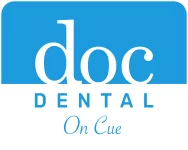What to Do About Wisdom Tooth Pain

Wisdom tooth pain is a fairly common complaint and is often the result of these third molars coming in during a person’s late teens or early adulthood. However, it is also common for wisdom teeth to become impacted, meaning there isn’t enough room for them in the mouth so they start coming in crooked and get trapped under the gum or against the neighboring teeth. Impacted teeth don’t always cause pain, but if pain does occur, it may be the sign of a problem that needs a dentist‘s attention.
If you have wisdom tooth pain, the first thing you should do is call the dentist. Pain in your wisdom teeth may be caused by infection. This is especially true with partially erupted wisdom teeth, i.e. wisdom teeth that are poking out of your gums part of the way but haven’t actually come in. Because they are exposed to the environment of your mouth, bacteria can get in and around your wisdom teeth, including under the gums where you can’t brush or floss away debris and plaque. The result can be an abscess, which is swelling and pain caused by infection. If this happens, your wisdom teeth need to be extracted as soon as possible.
We happily see emergency patients, but in case you can’t get in to see us right away, there are a few things you can do to reduce discomfort at home. Taking over-the-counter pain relievers such as acetaminophen (Tylenol) or ibuprofen (Advil) can relieve minor or moderate pain temporarily, in addition to reducing swelling and inflammation. You can make a pain relieving rinse by dissolving salt in warm water and swishing in your mouth for 30 seconds. You can also find topical pain relievers at the drug store that can provide temporary relief, such as gels that contain the numbing agent benzocaine.
Ultimately, if you’re experiencing wisdom tooth pain, you probably need to have your wisdom tooth extracted. At the first sign of a problem, be sure to contact us as soon as possible so we can start a treatment plan to make sure we keep your smile healthy.
